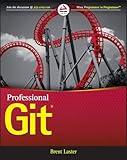Brent Laster
Global author, trainer and founder of Tech Skills Transformations LLC
Hi, I'm Brent Laster - a global trainer and book author, experienced corporate technology developer and leader, and founder and president of Tech Skills Transformations LLC. I've been working with and presenting at NFJS events for many years now and it is always exciting and interesting.Through my decades in programming and management,I've always tried to make time to learn and develop both technical and leadership skills and share them with others Regardless of the topic or technology, my belief is that there is no substitute for the excitement and sense of potential that come from providing others with the knowledge they need to help them accomplish their goals.
In my spare time, I hang out with my wife Anne-Marie, 4 children and 2 small dogs in Cary, North Carolina where I design and conduct trainings and write books. You can find me on LinkedIn (linkedin.com/in/brentlaster), Twitter (@brentclaster) or through my company's website at www.getskillsnow.com.
Presentations
Generative AI for Developers – Deep Dive
9:00 AM MDT
Get handson learning to understand and utilize Generative AI from the ground. Work with key AI techniques and implement simple neural nets, vector databases, large language models, retrieval augmented generation and more all in one single day session!
Generative AI is everywhere these days. But there are so many parts of it and so much to understand that it can be overwhelming and confusing for anyone not already immersed in it. In this fullday workshop, opensource author, trainer, and technologist Brent Laster will explain the concepts and working of Generative AI from the ground up. You’ll learn about core concepts like neural networks all the way through to working with Large Language Models (LLM), Retrieval Augmented Generation (RAG) and AI Agents. Along the way we’ll explain integrated concepts like embeddings, vector databases and the current ecosystem around LLMs including sites like HuggingFace and frameworks like LangChain. And, for the key concepts, you’ll be doing handson labs using Python and a preconfigured environment to internalize the learning.
Advanced GitHub Copilot: Tips and tricks to make the most out of your AI assistant
8:30 AM MDT
GitHub Copilot is a popular AI assistant that helps software developers more easily create content, get answers to coding-related questions, and handle many of the boilerplate tasks of software development. But it can also do much more in the areas where it can be used. Join Copilot expert (and author of the upcoming “Learning GitHub Copilot” book from O'Reilly) for a quick overview of some of the additional tips and tricks to allow you to make the most from this AI assistant.
Most users know GitHub Copilot can help with the basics of code generation, creating test cases, documentation, etc. But because the tool is AI based, there's a lot more that it can help you with in these areas simply by asking it and giving it the right prompts. In this session, we'll take a look at some ways to leverage beyond the basics of these tasks to creating results that are usable more deeply and widely. We'll also look at some ways to compensate when Copilot does not have the most recent information, or needs to be picking up more relevant context.
Incorporating AI into your SDLC
Leveraging AI tooling across the phases of your software development lifecycle
10:30 AM MDT
Just as CI/CD and other revolutions in DevOps have changed the landscape of the software development lifecycle (SDLC), so Generative AI is now changing it again. Gen AI has the potential to simplify, clarify, and lessen the cycles required across multiple phases of the SDLC.
In this session with author, trainer, and experienced DevOps director Brent Laster, we'll survey the ways that today's AI assistants and tools can be incorporated across your SDLC phases including planning, development, testing, documentation, maintaining, etc. There are multiple ways the existing tools can help us beyond just the standard day-to-day coding and, like other changes that have happened over the years, teams need to be aware of, and thinking about how to incorporate AI into their processes to stay relevant and up-to-date.
AI 3-in-1: Agents, RAG and Local Models
Building out an AI agent that uses RAG and runs locally on your system
1:00 PM MDT
Learning and understanding AI concepts is satisfying and rewarding, but the fun part is learning how to work with AI yourself. In this presentation, author, trainer, and experienced technologist Brent Laster will help you do both! We’ll explain why and how to run AI models locally, the basic ideas of agents and RAG, and show how to assemble a simple AI agent in Python that leverages RAG and uses a local model through Ollama.
Join us to learn about all 3 topics in 90 minutes!
No experience is needed on these technologies, although we do assume you do have a basic understanding of LLMs.
This will be a fast-paced, engaging mixture of presentations interspersed with code explanations and demos building up to the finished product – something you’ll be able to replicate yourself after the session!
Understanding MCP (Model Context Protocol) - A hands-on guide
Understanding how AI agents can connect to the world
3:00 PM MDT
MCP, or Model Context Protocol, is a standardized framework that allows AI agents to seamlessly connect with external data sources, APIs, and tools. Its main purpose is to make AI agents more intelligent and context-aware by giving them real-time access to live information and actionable capabilities beyond their built-in knowledge.
Join AI technologist, author, and trainer Brent Laster as we learn what MCP is, how it works, and how it can be used to create AI agents that can work with any process that implements MCP. You'll work with MCP concepts, coding, servers, etc. through hands-on labs that teach you how to use it with AI agents.
With MCP, developers can easily integrate AI agents with a wide variety of systems, from internal business databases to third-party services, without having to build custom integrations for each use case. MCP servers act as gateways, exposing specific actions and knowledge to the AI agent, which can then dynamically discover and use these capabilities as needed. This approach streamlines the process of adding new functionalities to AI agents and reduces ongoing maintenance.
MCP is particularly useful for scenarios where AI agents need up-to-date information or need to perform actions in external systems-such as customer support bots fetching live ticket data, enterprise assistants accessing knowledge bases, or automation agents processing transactions. By leveraging MCP, organizations can create more adaptable, powerful, and enterprise-ready AI solutions that respond to real-world business needs in real time
Understanding MCP (Model Context Protocol) - A hands-on guide
Understanding how AI agents can connect to the world
5:00 PM MDT
MCP, or Model Context Protocol, is a standardized framework that allows AI agents to seamlessly connect with external data sources, APIs, and tools. Its main purpose is to make AI agents more intelligent and context-aware by giving them real-time access to live information and actionable capabilities beyond their built-in knowledge.
Join AI technologist, author, and trainer Brent Laster as we learn what MCP is, how it works, and how it can be used to create AI agents that can work with any process that implements MCP. You'll work with MCP concepts, coding, servers, etc. through hands-on labs that teach you how to use it with AI agents.
With MCP, developers can easily integrate AI agents with a wide variety of systems, from internal business databases to third-party services, without having to build custom integrations for each use case. MCP servers act as gateways, exposing specific actions and knowledge to the AI agent, which can then dynamically discover and use these capabilities as needed. This approach streamlines the process of adding new functionalities to AI agents and reduces ongoing maintenance.
MCP is particularly useful for scenarios where AI agents need up-to-date information or need to perform actions in external systems-such as customer support bots fetching live ticket data, enterprise assistants accessing knowledge bases, or automation agents processing transactions. By leveraging MCP, organizations can create more adaptable, powerful, and enterprise-ready AI solutions that respond to real-world business needs in real time
Books
Jenkins 2 - Up and Running
by Brent Laster
All about Jenkins 2, Pipelines-As-Code, CI/CD, etc.Professional Git
by Brent Laster
Leverage the power of Git to smooth out the development cycleProfessional Git takes a professional approach to learning this massively popular software development tool, and provides an up-to-date guide for new users. More than just a development manual, this book helps you get into the Git mindset—extensive discussion of corollaries to traditional systems as well as considerations unique to Git help you draw upon existing skills while looking out—and planning for—the differences. Connected labs and exercises are interspersed at key points to reinforce important concepts and deepen your understanding, and a focus on the practical goes beyond technical tutorials to help you integrate the Git model into your real-world workflow.
Git greatly simplifies the software development cycle, enabling users to create, use, and switch between versions as easily as you switch between files. This book shows you how to harness that power and flexibility to streamline your development cycle.
- Understand the basic Git model and overall workflow
- Learn the Git versions of common source management concepts and commands
- Track changes, work with branches, and take advantage of Git's full functionality
- Avoid trip-ups and missteps common to new users
Git works with the most popular software development tools and is used by almost all of the major technology companies. More than 40 percent of software developers use it as their primary source control tool, and that number continues to grow; the ability to work effectively with Git is rapidly approaching must-have status, and Professional Git is the comprehensive guide you need to get up to speed quickly.


